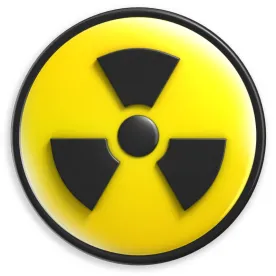The revised rules (10 C.F.R. Part 810) that govern “Assistance to Foreign Atomic Energy Activities” will take effect on March 25.
After almost three and a half years, the US Department of Energy’s (DOE’s) new Part 810 regulations are finally here. The lack of a grandfather provision in the new rule means that many companies will need to take action—in the form of written export applications and/or written notices—to maintain compliance with their technology export obligations. We discuss below what we view as the more important provisions of the new rule.
For more than 50 years, the DOE has regulated the export of certain nuclear technology. DOE’s rules, which implement section 57b(2) of the Atomic Energy Act (AEA) and are codified in 10 C.F.R. Part 810, restrict the transfer of nuclear technology and assistance to foreign persons whether they are located inside or outside the United States. The last time the DOE significantly revised Part 810 was in 1986. The new rules issued today take effect on March 25.
Part 810 covers the export of unclassified, nonpublic technology related to most of the nuclear fuel cycle: from conversion of uranium ore concentrates on the front end, to reprocessing of spent nuclear fuel on the back end. The DOE approves technology exports covered by Part 810 through “general” and “specific” authorizations. A general authorization is granted by regulation and typically requires only that an exporter file a report with the DOE within 30 days after export activity begins. A specific authorization requires the DOE’s prior approval before an export can occur.
The final rule for Part 810 has been a long time coming. In September 2011, the DOE issued a notice of proposed rulemaking (NOPR) that envisioned a comprehensive update of the regulations.[1] In particular, the DOE recognized that, since Part 810 was last updated in 1986, “the global civil nuclear market has expanded, particularly in China, the Middle East, and Eastern Europe, with vendors from France, Japan, the Republic of Korea, Russia, and Canada having emerged to serve customers in these emerging markets.”[2] The DOE accordingly planned to revise Part 810 to update “destinations and activities that are generally authorized or subject to a specific authorization, . . . assuring that the determinations are consistent with current US national security, diplomatic, and trade policy.”[3] The DOE received a significant number of pointed comments on the NOPR. Almost two years later, in August 2013, the DOE issued a Supplemental NOPR (SNOPR), which proposed additional changes to the draft rule. The final Part 810, as issued today, remains similar to the SNOPR. Notably, the DOE rejected a large number of the comments filed on the SNOPR.
Part 810 applies to “all persons subject to the jurisdiction of the United States who directly or indirectly engage or participate in the development or production of any special nuclear material outside the United States, and the transfer of technology that involves any of” a specific list of activities “either in the United States or abroad by such persons . . .”[4]This rule now makes explicit something that the DOE has regulated for decades—namely, that Part 810 applies to exports within the United States, also referred to as “deemed exports” (because, for example, the technology is deemed to be exported to the home country of the foreign national who currently is inside the United States).
Part 810 separates activities into three general categories: those that are exempt, those that are “generally authorized,” and those that are “specifically authorized.” In a change from the existing rule, the DOE is recognizing that transfer of information that is already in the public domain is entirely exempt from Part 810, rather than being generally authorized. The DOE is also expressly avoiding dual regulation by exempting exports approved by the US Nuclear Regulatory Commission (NRC), the Department of State, or the Department of Commerce. Other exempt activities include uranium mining, spent nuclear fuel storage, and transportation; certain activities that involve nuclear fusion reactors; and certain activities that produce radiopharmaceuticals.[5] Furthermore, transferring “publicly available information, publicly available technology, or the results of fundamental research” is exempt from Part 810.[6] The rule also now clarifies that transfers of technology to US permanent residents (i.e., holders of a “Green Card”) and to those whom the US government has granted asylum or refugee status are exempt from Part 810.[7]
The most visible change to the new rules is the replacement of a list of specifically authorized countries with those of generally authorized countries. This list is most commonly used to analyze exports of technology that do not rise to the level of sensitive nuclear technology. The current rules list, in section 810.8(a), those countries that require a specific authorization. All other countries not listed are subject to a general authorization. In the new rules, however, a list of generally authorized countries is provided in an appendix, and all other countries are specifically authorized. As a result of this change, dozens of countries that were generally authorized under the current rules will become specifically authorized under the new rules. The DOE has taken the position that the designation of a country under Part 810 as generally or specifically authorized is a “matter committed to agency discretion.”[8]
Many countries have no change in their status, including 44 major nuclear trading partners, such as the United Kingdom, France, Japan, Spain, the Republic of Korea, Canada, and Argentina. Additionally, major nuclear trading partners Russia, India, and China remain specifically authorized despite the fact that they have a current, nuclear cooperation agreement with the United States (under section 123 of the AEA).
On the bright side, Kazakhstan, Croatia, Vietnam, and the United Arab Emirates have switched from specifically authorized to generally authorized, based, among other things, on their entry into the European Union or their execution of separate 123 agreements with the United States. Mexico and Chile remain generally authorized, but for specific projects only. Last, recognizing the current geopolitical situation involving Ukraine, the DOE has added a new subsection, section 810.14, that prescribes reporting requirements for exports to Ukraine, which has been added to the generally authorized list.[9] Under the new section, a written report is due to the DOE 10 days before beginning any generally authorized activity in Ukraine, and a separate report is due 10 days after completing the activity.[10]
Unfortunately, the new rule does not grandfather technology exports covered by Part 810 to countries that were previously generally authorized but now are specifically authorized. The new rule does, however, provide for a transition process. First, for any applications for a specific authorization that are pending with the DOE for countries that are generally authorized under the new rule (i.e., for Croatia, Kazakhstan, Ukraine, United Arab Emirates, and Vietnam), the DOE is requiring that the applicant withdraw the application after the effective date of the new rule.[11] For activities that were generally authorized prior to the new rule going into effect, the proposed exporter must apply for a specific authorization for the activity by August 24.[12] However, those activities that switch from generally authorized to specifically authorized may continue until the DOE acts on the application.[13] Similarly, companies that continue to make deemed exports to employees who were previously nationals of generally authorized countries but are now specifically authorized must file reports that contain the information in 10 CFR § 810.11 by August 24.[14]
The DOE is also giving the nuclear industry an opportunity to report previously unreported deemed exports. “DOE recognizes that many companies with employees who are citizens or nationals of countries now subject to specific authorization requirements under the final rule announced today may not have previously reported the transfer of part 810 covered technology to such individuals to DOE under the 1986 version of the rule, as required, and further, that in many cases technology transfers already have occurred.”[15] The DOE is requesting that all such reports be made by August 24. It is silent as to whether it will grant amnesty for these voluntary disclosures.
Finally, an important change that is likely to have a large impact on domestic activities is the new general authorization for transfer of technology to a national of a specifically authorized country who is employed by or contracted to work at a US nuclear facility.[16] This general authorization is granted so long as the foreign citizen or national is working at an NRC-licensed facility as an employee of a US company, the employee signs a confidentiality agreement, the employee has been granted unescorted access in accordance with NRC standards, and the employer reports the authorized access to the DOE.[17] Importantly, the foreign employee does not have to be an employee of the NRC licensee.
[1]. Assistance to Foreign Atomic Energy Activities, 76 Fed. Reg. 55278 (Sept. 7, 2011).
[2]. Assistance to Foreign Atomic Energy Activities, 78 Fed. Reg. 46829 (Aug. 2, 2013).
[4]. 10 C.F.R. § 810.2(a).
[6]. 10 C.F.R. § 810.2(c)(2).
[8]. Assistance to Foreign Atomic Energy Activities, 80 Fed. Reg.9359, 9364 (Feb. 23, 2015).
[10]. Id.
[11]. Ukraine still has the 10-day notification requirement found in 10 C.F.R. § 810.14.
[12]. 10 C.F.R. § 810.16.
[13]. Id.
[14]. 10 C.F.R. § 810.12(g).
[15]. 80 Fed. Reg. at 9363.
[17]. Id.




 />i
/>i

